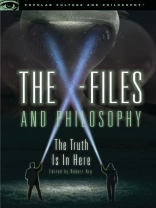In The X-Files and Philosophy, thirty-six fearless philosophers seek for the truth which is out there, in here, at least somewhere, or (as the postmodernists claim) nowhere. One big issue is whether the weird and unexplained happenings, including the existence of entities unknown to traditional science, might really exist. And if they did, what would be the proper way to behave towards them? Some of these entities seem to flout conventional laws of natureâbut perhaps we need to allow for different, as yet undiscovered, laws. If such fabulous entities really exist, what do we owe them? And if they donât exist, why do we imagine they do? In The X-Files, regular science is represented by Scully and usually turns out to be wrong, while open-minded credulity or pseudoscience is represented by Mulder and usually turns out to be right, or at least somehow on the right track. Scully demands objective, repeatable evidence, and she usually gets it, with Mulderâs help, in astounding and unwelcome ways. What lessons should we take from the finding of The X-Files that respectable science is nearly always wrong and outrageous speculative imagination nearly always right?
Yazar hakkında
Robert Arp: Robert Arp holds a Ph.D. in Philosophy. He is the author of Scenario Visualization (2008) and co-author of three books including What’s Good on TV (2011) and Philosophy De MYSTifie D (2001). He is the editor of 1001 Ideas that Changed the Way We Think (2013) and co-editor of at least a dozen other books, including Batman and Philosophy (2008), South Park and Philosophy: You Know I Learned Something Today (2006), Breaking Bad and Philosophy (2012), and Downton Abbey and Philosophy.












